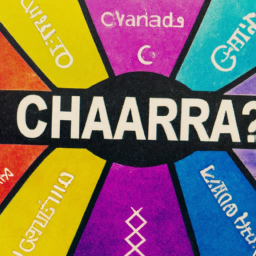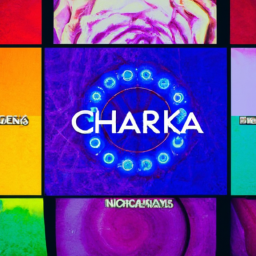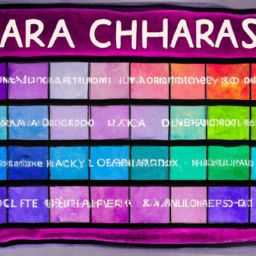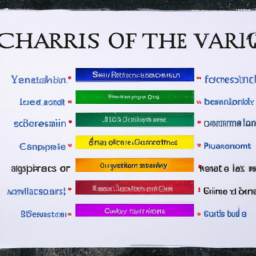The concept of chakras originated in ancient India and has been a part of Indian philosophy and spiritual practices for centuries. In Sanskrit, chakra means “wheel” or “disk” and refers to the energy centers in the human body.
According to the theory, there are seven chakras located along the spine, from the base of the spine to the top of the head. These chakras are believed to be interconnected and responsible for the flow of energy or “prana” in the body. Each chakra is associated with a specific color, element, and organ, and when they are balanced, they promote physical, emotional, and spiritual well-being.

Root Chakra
The root chakra, located at the base of the spine, is associated with the color red, the element of earth, and the sense of smell. It represents our connection to the physical world and serves as the foundation for all the other chakras. A balanced root chakra promotes feelings of security, stability, and grounding.

Sacral Chakra
The sacral chakra, located just below the navel, is associated with the color orange, the element of water, and the sense of taste. It represents our emotional and creative energy and is responsible for our ability to enjoy life’s pleasures. A balanced sacral chakra promotes passion, sensuality, and creativity.

Solar Plexus Chakra
The solar plexus chakra, located in the upper abdomen, is associated with the color yellow, the element of fire, and the sense of sight. It represents our personal power and self-esteem and is responsible for our ability to make decisions and take action. A balanced solar plexus chakra promotes confidence, motivation, and personal growth.

Heart Chakra
The heart chakra, located in the center of the chest, is associated with the color green, the element of air, and the sense of touch. It represents love, compassion, and connection, both with others and ourselves. A balanced heart chakra promotes emotional balance, forgiveness, and harmony.

Throat Chakra
The throat chakra, located in the throat, is associated with the color blue, the element of ether, and the sense of hearing. It represents communication, self-expression, and creativity and is responsible for our ability to speak our truth. A balanced throat chakra promotes effective communication, confidence, and listening skills.

Third Eye Chakra
The third eye chakra, located between the eyebrows, is associated with the color indigo, the element of light, and the sense of intuition. It represents our inner wisdom, imagination, and intuition and is responsible for our ability to see beyond the physical world. A balanced third eye chakra promotes clarity, insight, and spiritual awareness.

Crown Chakra
The crown chakra, located at the top of the head, is associated with the color violet or white, the element of thought, and the sense of knowing. It represents our connection to the universe and higher consciousness. A balanced crown chakra promotes spiritual enlightenment, inner peace, and oneness.
While the chakras are often depicted as swirling vortexes of energy, in reality, they exist in a subtle and non-physical form. Just like how we cannot see the wind but can feel its effects, we cannot see the chakras but can feel their influence on our physical, emotional, and spiritual well-being.
In essence, the chakras are a vital aspect of our being and play a crucial role in our overall health. By understanding and working on balancing our chakras, we can achieve a state of holistic well-being and find harmony within ourselves and the world around us.





Fascinating! I can’t wait to read more about it!
Amber567: Absolutely amazing!
#SoInteresting! I’m definitely going to find out more information on this topic.
Incredible – I love learning more about the power of our bodies!
This is such an intriguing topic – there’s so much to learn about the chakras and how they impact our physical and mental wellbeing!